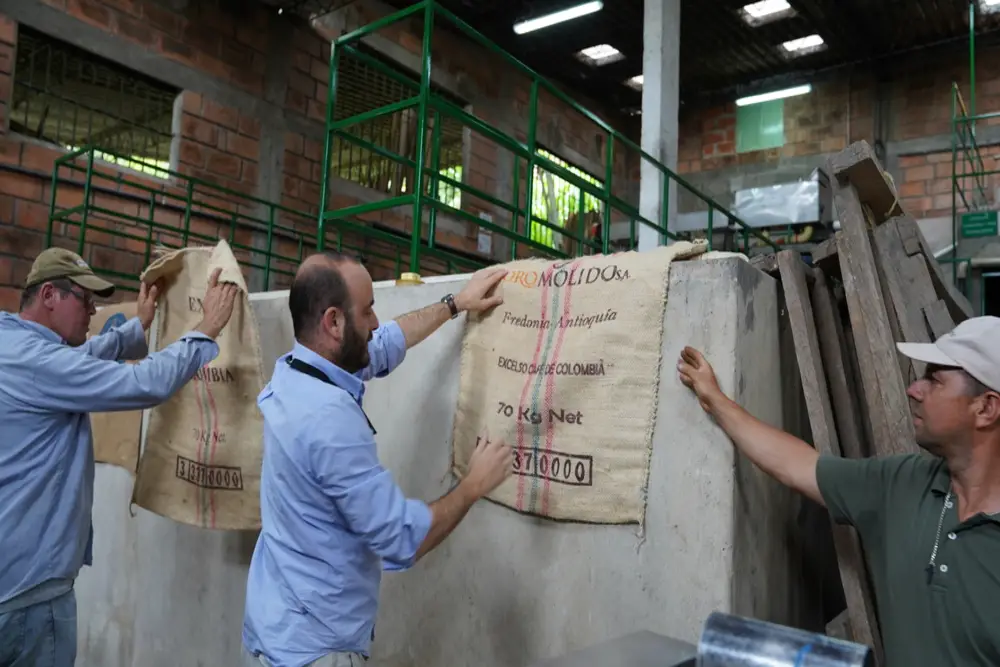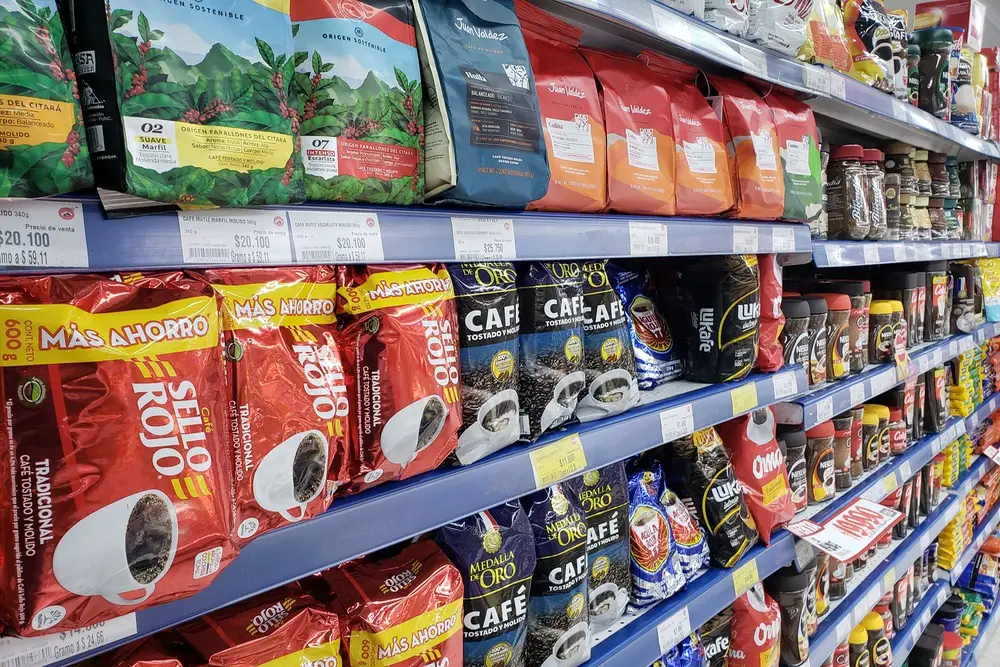Although there is hardly any country in the European territory where coffee is grown to any significant extent, European countries are the biggest economic beneficiaries from bean sales. This is because they dominate the market for roasted coffee and all of its derivatives.
Table of Contents
Coffee in Europe
Europe has a vibrant coffee culture. Europeans love their coffee culture and coffee scene, and conversations over a cup of espresso or latte are as meaningful as what’s in the cup. Countries like France, Italy, Greece and the Netherlands stand out. In Italy, for example, it is quite normal to make a “pit stop” while driving on the motorway just to sip an espresso at the coffee bar.
There are around 18,500 coffee companies in Europe. Hillerød (Denmark) is the province with the highest market share: 4% (724 coffee companies). In second place is the Danish city of Viborg with 278 coffee companies (2%). There are also 267 coffee companies in London.
The leading coffee companies in Europe are:
- EVOCA SPA
- NESTLE HELLAS SINGLE MEMBER SA
- JACOBS DOUWE EGBERTS NL BV
- Espresso House Denmark A/S
- TCHIBO WARSZAWA SP ZO O
- Sligro Food Group Belgium
- JACOBS DOUWE EGBERTS BV
- Maas International B.V
- CAFFE’ TROMBETTA SPA
- Pelican Rouge B.V
How do you import coffee from Europe?
First of all, an analysis or research of the many variables always increases the chances of a successful import. This allows you to understand the regulations that must be followed at each stage of the process.
Without prior analysis and import strategy, negative surprises such as additional duties, confusion and even customs delays may occur.
Product classification
Knowing the type of product to be imported is another factor that contributes to the success of a logistics operation; knowing the type of packaging, the dimensions, the quantity to be transported and all the details specific to each type of goods favors the most efficient development of each phase.
When preparing to export and import goods to and from the European Union, you need to classify them correctly to ensure you are familiar with the correct procedures. Specific information and regulations are required for the different types of imported or exported goods.
Vegetable and animal goods
falls into this category, you must follow relevant health and safety regulations. These procedures include health certifications, biosecurity requirements and border controls.
When goods of this type are declared, three checks are carried out:
- Electronic Document
- Identity verification
- Physical Inspection of the Goods
Selection of the most suitable Incoterms
Incoterms are rules established by the International Chamber of Commerce that are used in international sales contracts.
Each Incoterm varies depending on the operation to be carried out, which is why it is essential to clearly define the means of transport, determine the place of delivery and therefore regulate all the rights and obligations between the parties involved in the importation.
Documents for import from Europe
Having all the necessary documentation for each stage of importation is another fundamental aspect. This not only ensures order and complete control from start to finish, but also minimizes the possibility of additional costs and encourages an effective response to any situation that arises.
Some of the documents required for import are:
- Commercial Invoice
- Geographic Identification Stamp
- Certificate of Origin
- Health, phytosanitary and pest control certificate issued by the EU or by the competent authority of the country of origin
- Air or ship bill of lading
- Incoterms
- labeling standards
Agricultural documentation
Phytosanitary Certificates
Phytosanitary certificates are required for most fresh fruits, vegetables and other plant material.
Health certificates
For goods consisting of animal products or by-products, Member States require consignments to be accompanied by a certificate issued by the competent authority of the exporting country. This applies regardless of whether the product is intended for human consumption, for pharmaceutical purposes or for non-human purposes only.
Summary declaration
Goods entering the customs territory of the European Union are subject to customs supervision from the moment of arrival until the customs formalities have been completed. These goods require a summary declaration, which is submitted once the goods have been presented to customs officials.
The customs authorities may set a time limit for lodging the summary declaration, but this cannot be longer than the first working day after the date on which the goods are presented.
The summary declaration must be submitted by the person who brought the goods into the customs territory of the European Union or by the person who assumes responsibility for the carriage of the goods after entry.
The summary declaration can be made on a form provided by the customs authorities. However, customs authorities may also allow the use of any commercial or official document containing the specific information needed to identify the goods.
SAD
It serves as the EU importer’s declaration. This form describes the goods and their movement in the world and is essential for trading outside the EU or trading non-EU goods. It includes both customs duties and VAT. The declaration is made by the person sending the goods, usually the registered importer or an agent on behalf of the importer.
Registration and Identification of Economic Operators
Since 2009, all companies based outside the European Union must have an Economic Operator Registration and Identification Number Identification – EORI). This as soon as you want to submit a customs declaration or a summary declaration.
The EORI number must then be used for customs clearance, which must be formally requested from the customs authorities of the country to which the company is exporting for the first time. The customs authorities of the respective country may require additional documents to be submitted with the formal application for the EORI number.
The tariff system
At this point it is important to refer to the international conventions and agreements that the European Union has concluded with other countries or economic blocs.



